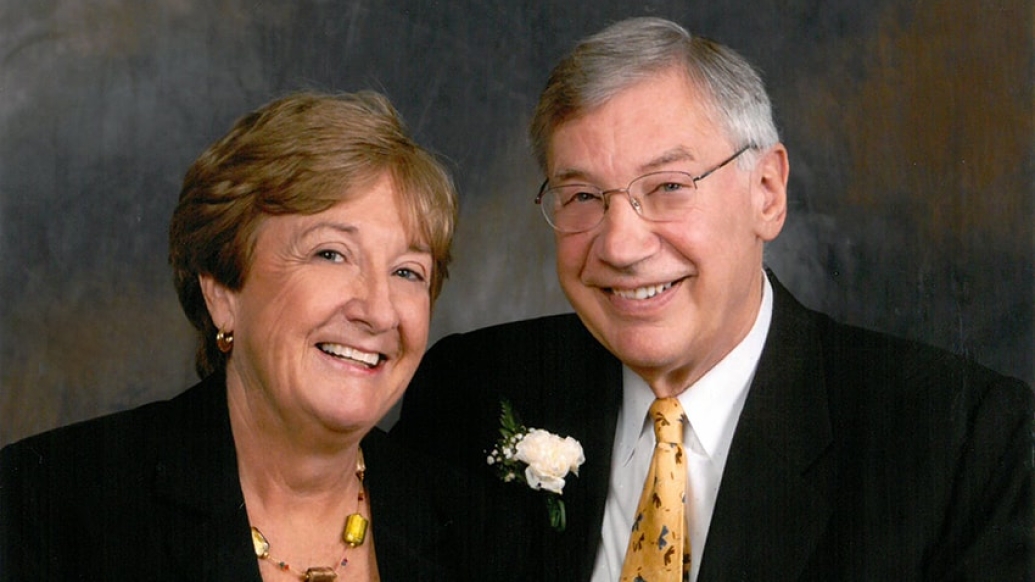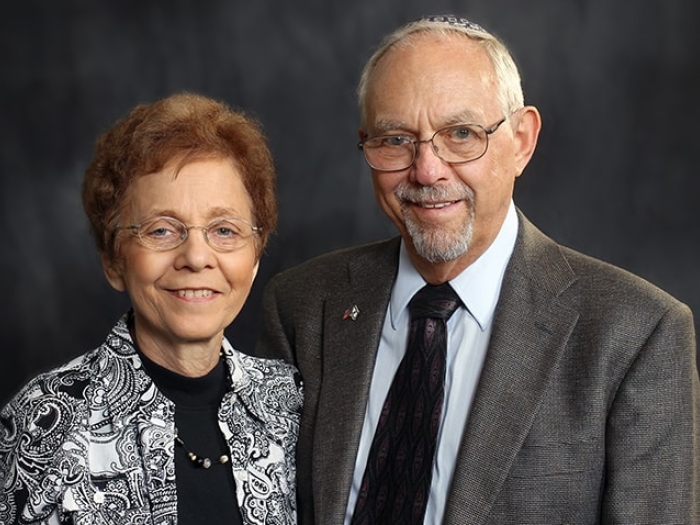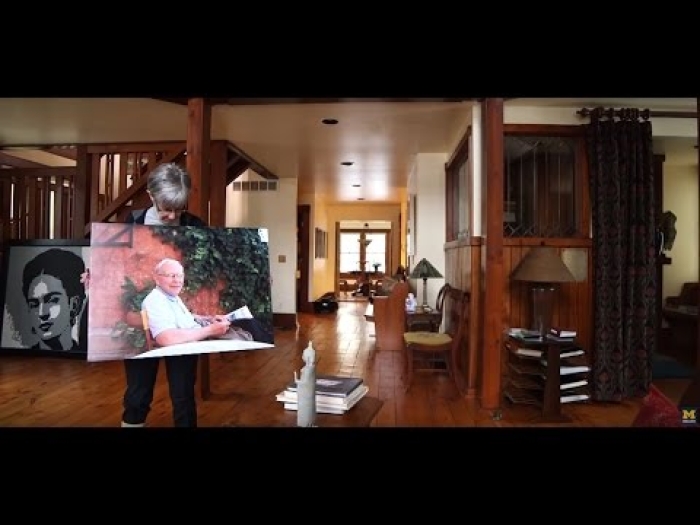A first-person account of Lewy body dementia symptoms, diagnosis and treatment, plus tips for other dementia caregivers.
7:00 AM
Author |

After 40 years of marriage, my beloved husband, John, was diagnosed with Parkinson's disease. He had so many of the classic Parkinson's symptoms such as an uneasy gait, soft speech and shaky handwriting. He was a retired attorney, a former litigator and an avid reader with a wide range of interests. A proud man, he hid the Parkinson's well.
MORE FROM MICHIGAN: Subscribe to our weekly newsletter
Three years into the Parkinson's, he looked at me during a conversation and said, "You're a really nice lady and I enjoy talking with you, but I don't know your name." Now he was confused and couldn't hide it. I was alarmed and scared for the both of us.
An additional diagnosis
John had been under the care of neurologist Praveen Dayalu, M.D., for the Parkinson's. One day, Dr. Dayalu was watching John during an appointment and gave us the bad news: In addition to the Parkinson's, John had Lewy body dementia, a form of dementia often confused with Alzheimer's disease.
We had never heard of such a condition. It turns out that it is the second most common form of degenerative dementia, and it's growing in numbers.
Because so few people know about LBD, I had to educate myself. I credit much of what I learned to Dr. Dayalu and John's primary care physician, Lawrence J. McMaster, D.O.
Advice to caregivers
I've learned a lot during our journey. Here is my advice to caregivers in the same situation:
-
Be prepared to educate others — including physicians. Sometimes people are unfamiliar with LBD. They may not know about important issues like medication interactions or time windows.
-
Read all about it. I learned a lot from books that University of Michigan social workers and members of the Ann Arbor LBD Support Group recommended, as well as from the Lewy Body Dementia Association's website.
-
Use your voice. You will need it to speak up when your loved one needs help.
-
Establish a rapport with your loved one's neurologist. I always felt that Dr. Dayalu knew what was going on with John — and knew how to explain it to me.
-
Try to put a positive spin on everything. Even if you're upset, don't let your loved one know. If I could just stay calm, then John was calm.
-
Be vigilant. LBD is different from other dementias. You have to be on top of it all the time.
-
Keep things interesting for your loved one — and for yourself. Even though John had LBD, we still traveled.
-
Don't sweat the small stuff. I would take John with me to the library, where he would take out the same books and videos I had just returned, and I never said anything. It was better that way.
-
Take care of yourself. If you don't take care of yourself, you won't be able to take care of your loved one or make the sound decisions that need to be made.
-
Get paid caregiver help if you can afford it. And don't feel guilty about it.
-
Accept help from others. Don't be afraid to accept help from friends who can spend a few hours with your loved one or take him or her out to the park or to an event. You need some time to rejuvenate.
-
Acknowledge that eventually you may have to place your loved one in a memory care facility. Dr. Dayalu reassured me, "Don't worry. You will know when it is time." He was right. It's hard to place your loved one in a facility, but it's even harder to keep him or her at home.
-
Check to see if the memory care facility staff are trained in LBD care. John's was.
-
Remember this is a long, emotional journey. Get help when you need it. Along the way, I accepted help from friends and family (of course!), John's doctors, social workers, the caregivers at his memory care facility and other members of the Ann Arbor LBD Support Group (a Rinnie LBD Initiative).
The end of our journey
John passed away early this year, after spending only two months in the memory care facility.
In the days between his diagnosis and his passing, he spent precious time with me and our family and friends.
He knew from the beginning that he wasn't going to get better. But up until the end, he maintained his sense of humor. He lived his life with as much enthusiasm as he could muster, and he was bound and determined to do his best.
I credit that to the wonderful care he received at the University of Michigan Health System, to so many supportive people and to John himself. He was an incredible man.
I can look back and see how lucky we were. It was a difficult journey, but not as arduous as some.

Explore a variety of healthcare news & stories by visiting the Health Lab home page for more articles.

Department of Communication at Michigan Medicine
Want top health & research news weekly? Sign up for Health Lab’s newsletters today!





